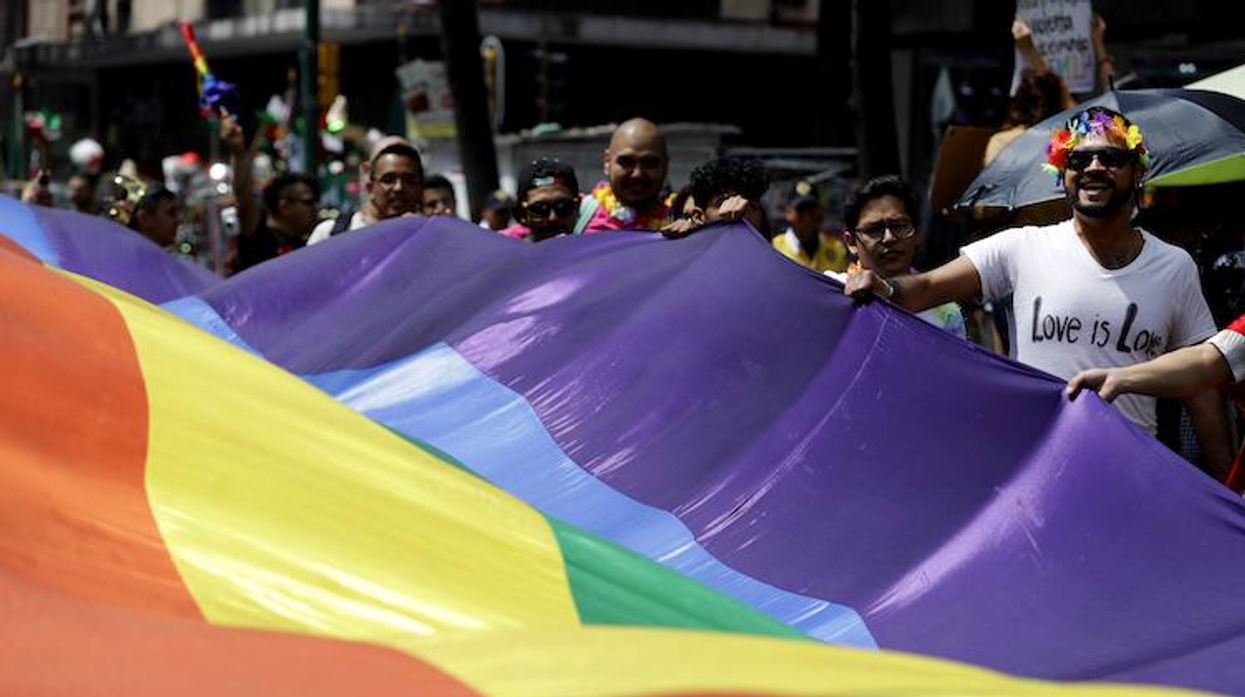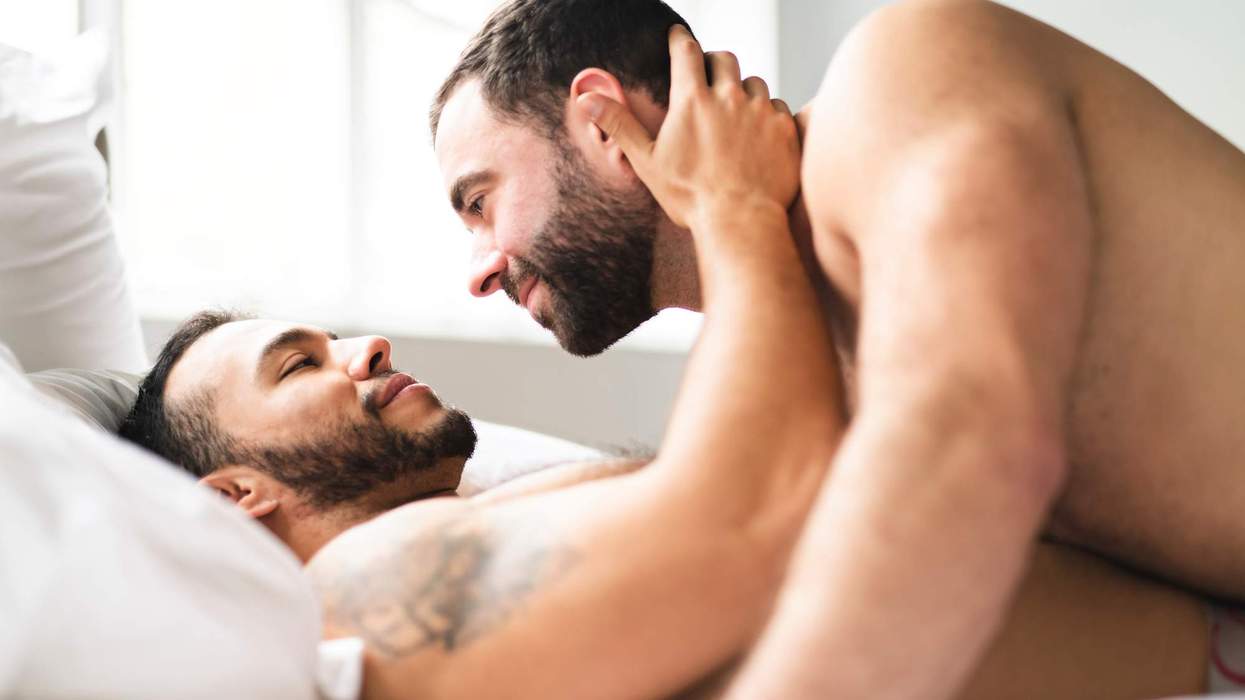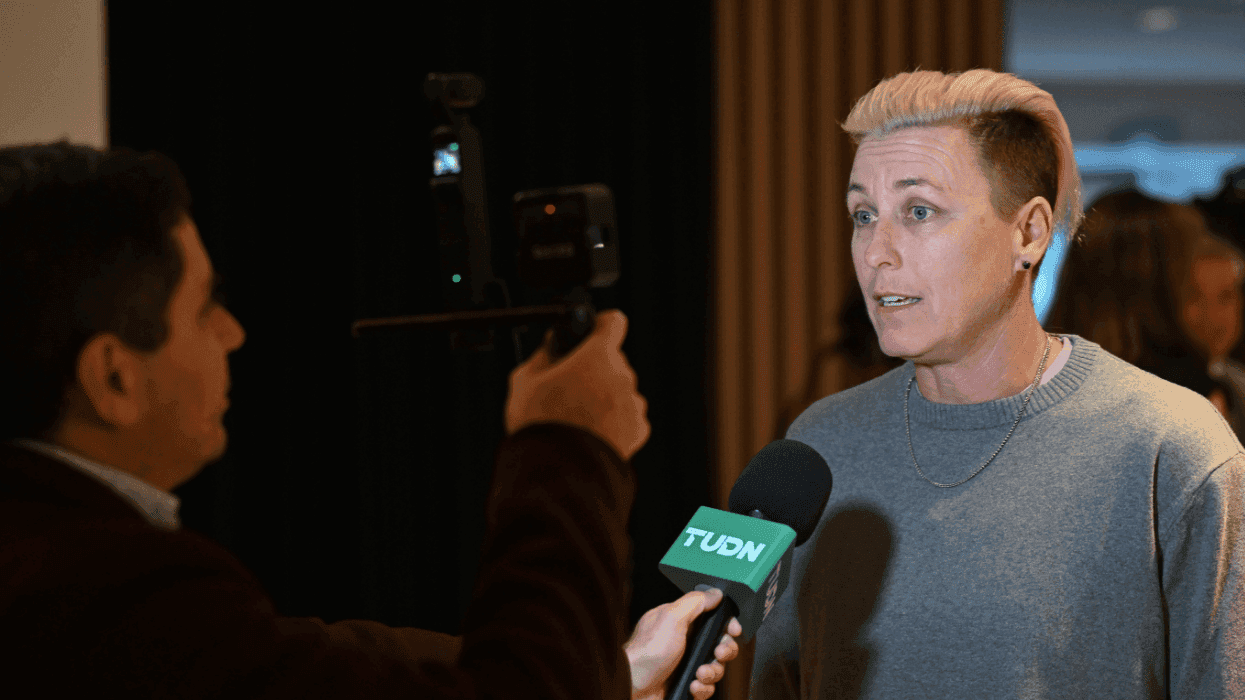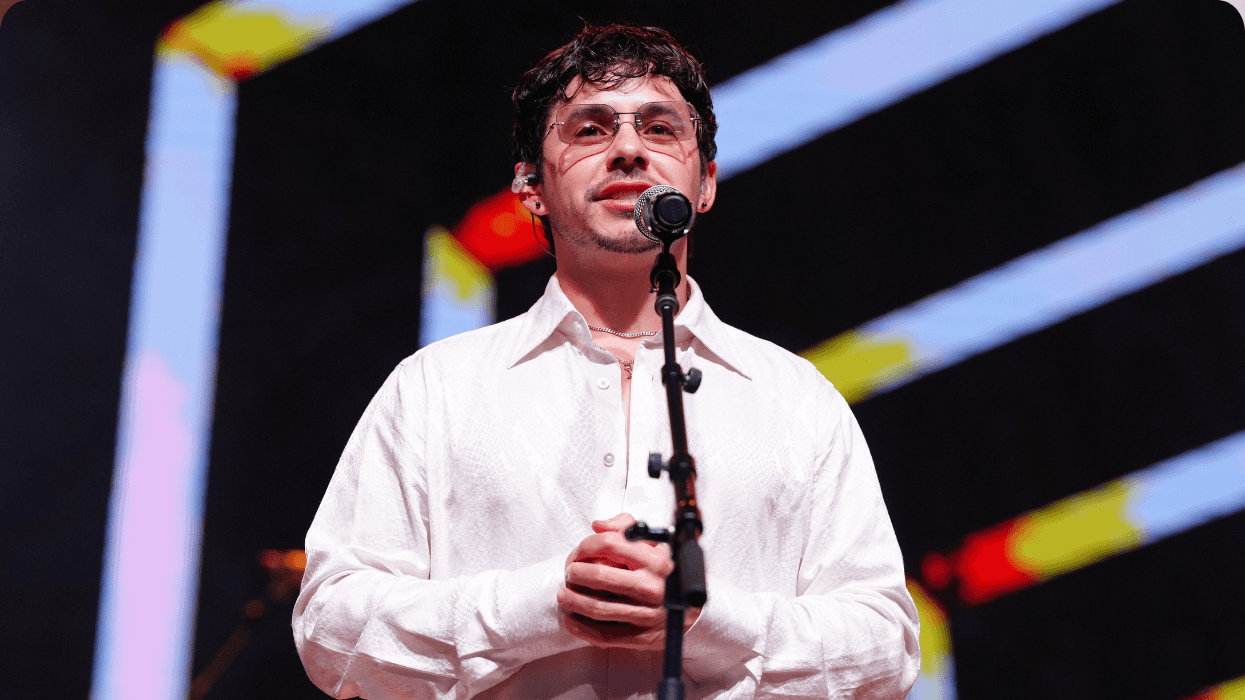My grandmother told me not to wear the pants. I was heading on assignment to Mississippi for Rolling Stone after the governor signed House Bill 1523, a law which would allow businesses to deny services to customers based on their sexual orientation or gender identity. When I was packing my bag, my Nana warned me to dress conservatively, claiming that the South isn't "as liberal as New York." I have a pair of eye-catching purple jeans, my favorite item of clothing, and she told me to leave them at home. "I just don't want anything to happen to you," she said.
I've been very visible my entire life because I don't have the luxury of hiding. I have a "gay voice" and a pronounced walk, like Charlie Chaplin without the twee bowler. I don't try to hide my effeminacy, and I refused to go back into the closet for anyone. Instead of folding up my queerness and tucking it away in the dresser, I stepped off the bus in Jackson, Miss. with the pants on. The people at the Hilton hotel were kind, and they didn't seem to care much that I "wasn't from around here," the small-town euphemism for anyone who looks a little different. I asked a waiter what people did for fun on a Friday night. He's married so he wasn't sure, but he did give me extra breakfast sausage. We called it even.
I had been harassed before, and I convinced myself that I was used to it. You tell yourself that your skin is thick like the leather on antique chest, but it isn't. It remains penetrable and porous; even as you learn to harden yourself, the world seeps in.
Walking to a meeting with a local LGBTQ nonprofit, I passed a group of businesspeople who appeared as if they were dressed for a stock photo from the 1990s--grey suits that hung at an angle, ties slightly too big. They talked amongst themselves, smiling until they saw me. One of them said a little too loudly, knowing that I would hear, "Doesn't he know that's illegal now?" I'd been called a "f****t" before, and I'd felt unsafe in places where hostile strangers showed me I didn't belong. No one, however, had ever insinuated it was against the law to be like me. His comment wasn't factually accurate (that's not how HB 1523 works), but it stung.
Something was different that day, and I could feel it. The world had changed.
Since Donald Trump announced his candidacy for president in 2015, I have been constantly harassed and threatened. I've heard more homophobic epithets in the past two years than I have in my entire life. I had to move from my apartment because a group of men wouldn't stop following me to try to find out where I lived, and I was worried I would meet someone I couldn't outrun. A mailman in my new neighborhood called me a "cocksucker" while he was on duty, and while waiting for the train a few months later, someone told I would be "better off dead." A man in Chicago tried to beat me with a giant stick, swinging his found object as he screamed at me to get away.
I could still hear him calling me a "f****t" a few blocks away as I called 911, struggling to catch my breath. I wasn't wearing the purple pants, though. This time they were pink.
Is it my fault that in the past year, I've become so afraid of walking alone at night that I have to have my boyfriend go with me to the pharmacy, even though it's only a few blocks away from my apartment? According to a Wyoming Senator, it is. Mike Enzi, a Republican, told a group of students last week that LGBTQ victims of hate crimes shouldn't be pushing their identity "in somebody's face." When asked about violence against marginalized communities, he recalled a story of a man he knows who frequently wears a tutu out to the bar and can't fathom why he keeps getting in fights with other patrons.
"Well, he kind of asks for it," Enzi said. "That's the way that he winds up with that kind of problem."
The Senator has since apologized, saying that his words were taken out of context, but his views are as common as they are dangerous. Erick Erickson, a contributor for Fox News, defended Enzi in The Resurgent, saying that queer and trans people who express themselves outside the norms of gender "unnecessary affront to common decency where good mannered people try to avoid making everyone else uncomfortable and putting others in awkward situations."
"If a guy walks into a bar in Wyoming wearing makeup and a tutu, he's probably going to be asked to leave, if not picked on or punched," Erickson writes. "If you don't like that, don't go to a bar in Wyoming wearing a tutu. It really is that simple."
A 2010 study published in the Journal of Homosexuality shows that victim blaming, like asking what someone who was gay bashed was wearing or doing at the time of the attack, is extremely pervasive. Researchers presented participants with two scenarios: In one, a man was attacked in a gay bar, while in the other case, the victim was in a mixed-orientation establishment at the time of the incident. The latter gentleman had interacted with the assailant, flirting with him and trying to get him to dance. The authors of the study found that respondents were more likely to blame the person in the latter example, believing that his actions had provoked the violence he experienced.
There's always a reason to suggest that LGBTQ people are to blame for the disproportionate violence they face just for going about their daily lives. It allows us to ignore the homophobia and bigotry that led to their injuries and too often their deaths.
After Matthew Shepard was pistol-whipped, tied to a fence and left to die outside of Laramie, Wyoming in 1998, the two men claimed in court that Shepard provoked them by making sexual advances toward them. That story was later recanted. Jennifer Laude, a 26-year-old transgender woman, was drowned in a toilet bowl in a Philippines motel room by a man who would later tell prosecutors that he didn't know she was trans. This is often known as the "panic" defense, based on a false idea that learning someone is LGBTQ induces a form of temporary insanity. If Laude had only disclosed her identity, so the argument goes, everything could have been different.
When people who want to blame the victim are looking for a short skirt to point to, they'll find them everywhere. After Elliot Morales gunned down Mark Carson four years ago in the West Village, Morales asked why his victim, a 32-year-old gay man, didn't run.
This rationale is part of the reason why just 17 states have LGBTQ-inclusive hate crime laws nearly two decades after Shepard was killed, even as violence against the LGBTQ community continues to rise. A recent report from the Center for the Study of Hate and Extremism at California State University San Bernardino found that in the Los Angeles metro area, bias attacks motivated by gender identity and sexual orientation increased by 15 percent last year. In the District of Columbia, the problem was even worse: Anti-LGBTQ hate crimes rose by a staggering 59 percent.
As a white, cisgender man, I have been lucky. I don't face the burden of violence shouldered by trans women of color, who are more likely to be beaten or murdered than members of any other group in the U.S. Just this year, nine transgender women have already been killed, a majority of whom were black. The most recent was Chayviss "Chay" Reed, a Miami woman who loved to dance. Friends described Reed as "the life of the party."
Reed didn't ask to become just another heinous statistic. All any LGBTQ person wants is to be able to live their truth without worrying what someone might do to them because of it.
Those who fear being attacked and beaten because of their identity have every right to "tone it down" or go back into the closet, a choice that many are forced to make every day in environments that aren't safe for them. But to everyone who becomes even louder and more vibrant in the face of enormous struggle, we don't owe them our disdain and our judgment. It takes courage to continue being yourself even when half the world hates you for it; all of us should salute those who refuse to be silenced--whether that's a transgender woman dancing like nobody's watching or a guy sipping a martini in a tutu.
I will never put away my purple pants. If you're walking past me on the street and that offends you, it's people like you who are the problem, not us.






























